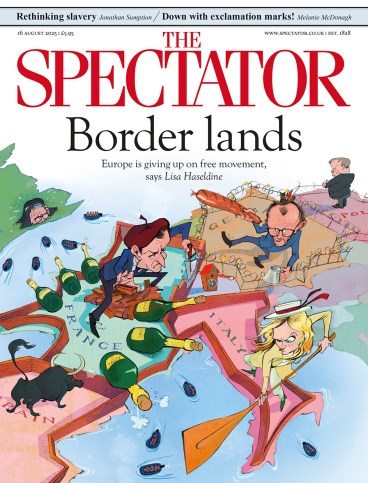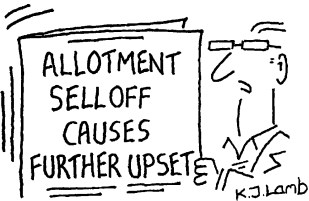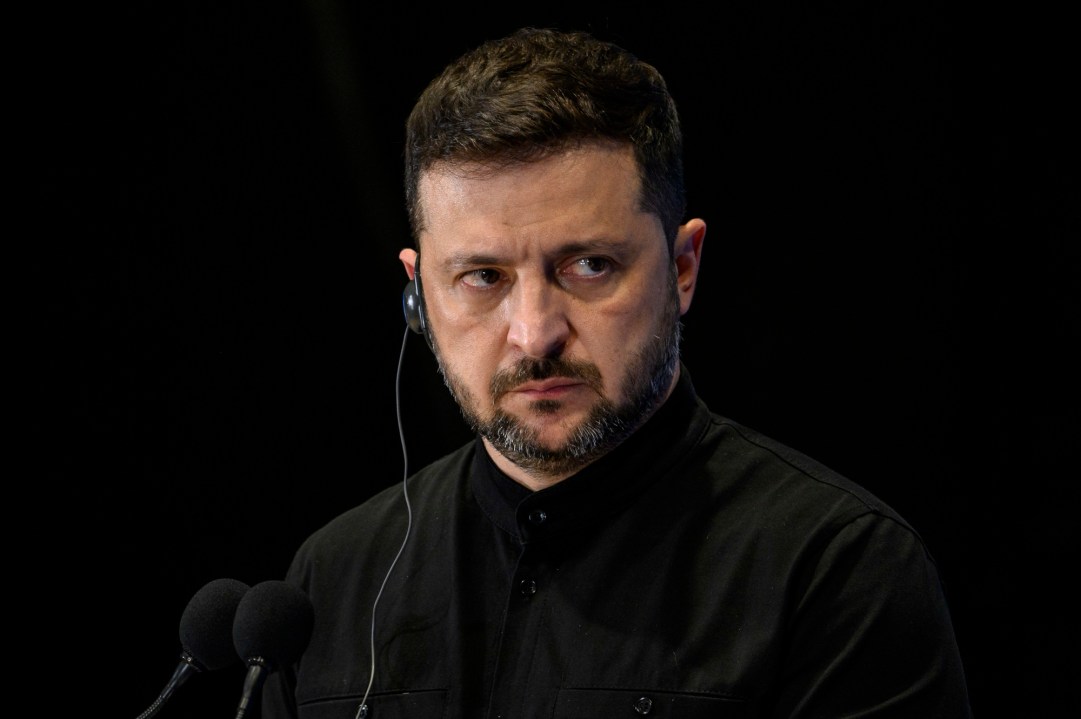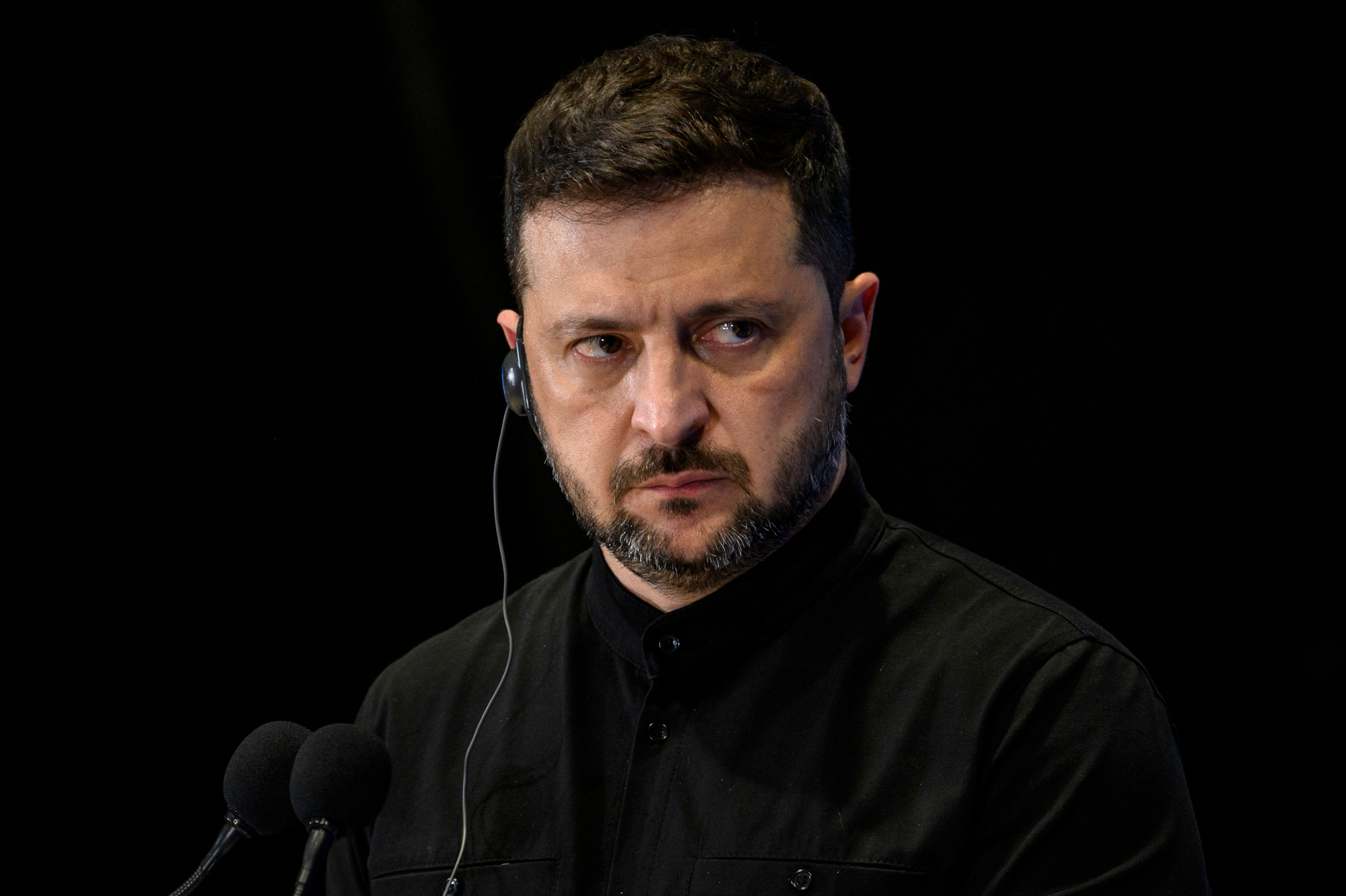
Is Volodymyr Zelensky becoming a liability for the West and for his own country? We are entitled at least to pose this question as we (I mean America and Europe) are funding this war.
The fact is that neither side seems capable of winning, so let’s park the sermonising and look for the compromise in which so many wars – just wars as well as unjust ones – have always ended
I ask because it is clear, and for years has been clear, that the conflict with Russia must end in a compromise, and the shape of that compromise should not be in doubt. Russia must be given a ladder to climb down and this must involve land. Ukraine must gain what from the start has been the great prize that Moscow has tried to deny it: an unshakeable place in the community of European democracies, with the military and economic guarantees from the West that make that place secure.
It was Boris Johnson who first framed the idiotic boast that now threatens to block progress towards such a settlement. ‘Not an inch!’ he cried, to Ukrainian cheers, when he was prime minister. Perhaps he thought this was just the kind of thing you say for an easy headline and the whoops of the groundlings; but even he must have doubted that Russia could realistically be driven from everything it had gained, and Vladimir Putin be forced to grovel. Too many British minds, I think, have been prey to the illusion that the second world war was a template for future conflict, and Hitler a template for Putin. Most wars, however, end in messy compromises, and that is how this one must end too.
Let me start with the issue of land. It would be stupid for a generalist columnist like me to feign the knowledge that will be needed once negotiations over new borders begin, but I will volunteer this: Crimea (it can at least be argued) is not historically part of Ukraine and only got tacked onto Ukraine when the Soviet Union had both of them among its many countries and regions. I spent time in Ukraine last year, choosing to talk not to soldiers, generals or politicians, but to the under-25s. If you seek the point on the dial when many younger Ukrainians’ refusal to contemplate ceding territory begins to waver, that place is Crimea.
Despite official assurances from Ukraine that most citizens are against a land-for-peace deal, other polls (and my own conversations) suggest that people don’t have principled objections to any ceding of land so much as serious doubts about whether Putin could ever be trusted to keep his word once a land-for-peace deal had been signed.
That then – the security side of the agreement which I suggested at the beginning of this column – is absolutely the nub of the entire settlement. I’m in no doubt that if the Ukrainian people could be convinced the settlement would be permanent, and backed to the hilt by the West, they would vote tomorrow for a treaty that gave Russia permanent possession of some of what it has already taken.
Let me anticipate at this point some readers’ objections. Firstly this: ‘Nothing agreed with Putin can he be relied upon to honour.’ The trouble with this objection is that it is too strong. It means that even if he could be driven back to the old frontiers, and surrendered, he would try again later. I reply that he well might: that is why the security guarantees for Ukraine remain key.
Secondly this: ‘We must never reward Putin’s aggression.’ I’m afraid that, ever since wars began, aggression has often been rewarded. This one, in which incalculable numbers of lives on both sides have already been lost, and if it continues many more will be, must not be accorded the status of a moral lesson for the ages. The fact is that neither side seems capable of winning, so let’s park the sermonising and look for the compromise in which so many wars – just wars as well as unjust ones – have always ended.
And finally this: ‘We owe it to the Ukrainian military dead, brave men and women whose lives were sacrificed for their country, not to settle for less than victory.’ Well, if so, does Russia not owe it to the greater numbers of Russian military dead whose lives were sacrificed for their country too? What do we owe the British dead whose sacrifice in Afghanistan was also for a noble cause? This logic, applying as it must to both sides of any conflict, leads only to madness.
None of us should be at all confident that Putin is ready to deal. I suspect otherwise. The greater likelihood is that in any negotiations he will fall back on Moscow’s insistence that ‘the root causes’ of this conflict must be tackled. By this he means Ukraine’s departure from the orbit of the Russian Federation. That is why security, not land, is what may prove the sticking point this time, because Ukraine’s departure from Moscow’s orbit must indeed be made secure.
But if not this summer or this year, then next summer and next year, when the West’s military support for Ukraine does not waver, and Moscow grows weary, this – security – must be at the heart of any negotiations. And those guarantees are up to us.

Which brings me back to Zelensky. Who can blame him? Perhaps years of war, years of acute personal tension, years of sticking doggedly to your guns, years in the eye of the storm when your whole country’s future rests on your shoulders, jam the flexibility of mind needed, not to fight but to deal. But there’s a real danger now that Zelensky’s apparent stubbornness over this ‘not an inch’ business may so infuriate a temperamental US President that American (and with it European) resolve begins to fray.
Zelensky should not be digging in his heels on the question of land, and European
nations, including our own, should not be encouraging him to. We probably can’t save Ukraine without the Americans, and the Americans won’t save Ukraine unless there’s movement on conceding land.
The Ukrainian President must get off his high horse, and Europe should stop indulging his intransigence. It’s as simple as that.









Comments